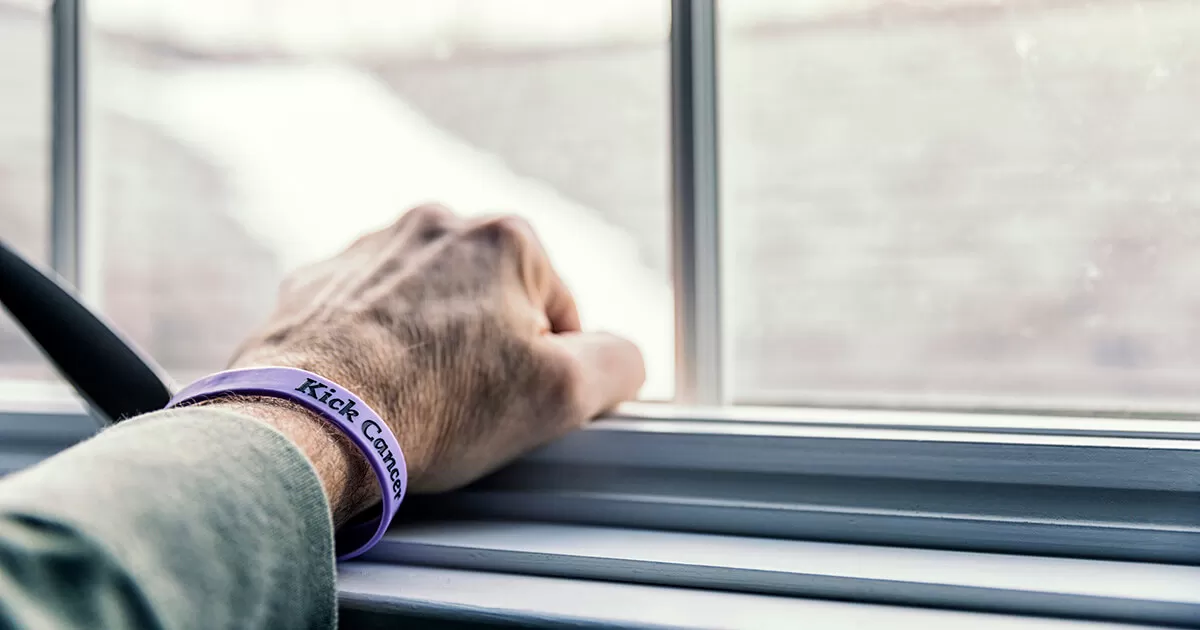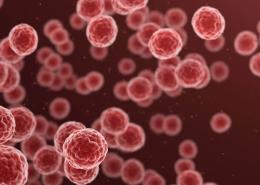Breast Cancer in Men: Michael’s Story

In 2007, Michael Kovarik and his doctor discovered a lump near his left nipple, which was beginning to invert. Michael proceeded with the necessary follow-up as his doctor ordered a series of tests. When he heard the words breast cancer, Michael didn’t have the faintest idea that men could be affected by it. His immediate thought: it’s a woman’s disease.
Dealing with his breast cancer diagnosis
Michael was hesitant about sharing his diagnosis at first. “It took me a while to overcome my own shock and disbelief,” recalls Michael. When he initially opened up about his journey to others, it was not always well received. Some people became uncomfortable, and often fumbled for the right words. “After a few months, I came to a realization that I should talk about it. If no one knew that men could have breast cancer, then it was time to raise awareness.”
It is estimated that in the US in 2019 about 2,670 men will be diagnosed with breast cancer and about 500 men will die from the disease. Breast cancer is often seen as a disease that affects only women; therefore, men tend to be diagnosed at a more advanced stage of cancer.
Michael, a retired elementary school teacher, became an active contributor of Anti-Cancer Club, an online blogging community for people to share their stories and connect with others touched by cancer. He is a former radio show host and has authored a book called Healing Within: My Journey with Breast Cancer.
Today, people still react with surprise when he talks about his cancer. But they’re not as shocked as they used to be. “I’ve noticed that people are more curious rather than uncomfortable and I certainly welcome their questions,” Michael explained.
On having advanced cancer
In 2015, Michael learned that his breast cancer had spread. Feelings of despair and sadness rushed in as well as the thought that he had done everything he was supposed to as far as following his doctor’s recommendations, keeping his medical appointments, eating right, and staying fit—so how and why? But Michael’s doctor told him, “Don’t cash in your life insurance policy yet.”
Michael now has Stage 4 breast cancer, the most advanced form of the disease in which cancer has spread beyond the breast to other parts of the body, and is currently on cancer treatment. He has since become active in the metastatic breast cancer community by joining advocacy organizations such as the Male Breast Cancer Coalition and Metastatic Breast Cancer Alliance.
Michael explains that the conversation on advanced (also called metastatic) breast cancer is very different from what many people see or hear about breast cancer in earlier stages. Many may associate breast cancer with pink ribbons and stories about survivorship. But with advanced cancer, the discussion is about managing or minimizing symptoms of the cancer, and maintaining your quality of life. He stresses that people with advanced cancer usually don’t ever stop taking medications for their cancer.
Michael’s outlook
Michael believes that everyone has a different journey, but a person’s outlook on life guides how he or she handles setbacks. He explains, “I was scared at first and I still have breakdowns today. But I decided a while ago that I didn’t want to be afraid anymore. I had to learn how to be at peace with myself. After that, I could come to peace with everything else—including my cancer.”
Michael stresses the importance of letting go of what you can’t control. Here are the top six lessons Michael wishes to share based on his journey:
- Listen to your body. Follow up with your doctor on anything that seems off.
- Find good healthcare providers. I’ve had a few doctors, and some were better than others. My current doctor is not only excellent but he also knows exactly how to talk to me.
- Accept your feelings. It’s okay to feel fear or sadness. But it’s important to deal with them in order to move on.
- Share your experiences with friends, family, or supporters.
- Be aware of feelings of depression. It’s common for people with cancer to experience major depression. Seek help if you have it.
- Have quiet time to listen to your thoughts. It’s during these reflection moments that I realize it’s time to face my fears or that I find more strength within.

“Because of where I’m at, when I take my dog—Polar—for a walk, I’ll notice that the stars are shinier and more beautiful against the night sky. I find joy in the simple things.”
To learn more about breast cancer in men, click here.
Caroline Pak, PharmD, is a pharmacist and the Medical Editor-in-Chief for Get Healthy Stay Healthy at Pfizer.
References
- 1. American Cancer Society. What Are the Key Statistics About Breast Cancer in Men? Accessed August 4, 2017.
- 2. Stang A, Thomssen C. Decline in breast cancer incidence in the United States: what about male breast cancer? Breast Cancer Res Treat. 2008;112:595-596.
- 3. da Silva TL. Male breast cancer: medical and psychological management in comparison to female breast cancer: a review. Cancer Treat Commun. 2016;7:23-34.





